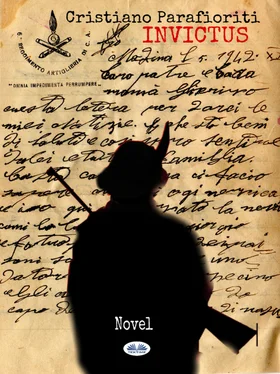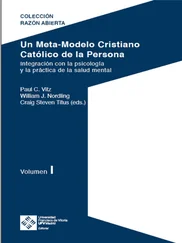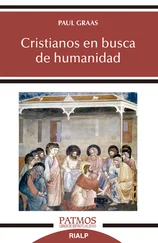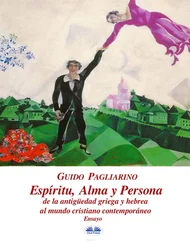“And where shall I send him?”
“Send him to some farm in Nicosia, Enna, Paternò! Anywhere far from the province of Messina. Sooner or later, the notification will reach him there too but, from town to town, the paperwork is slower. If, perhaps, in the new year, the war ends, by the time he leaves, they train him and assign him... he might end up not even serving a day in the front line.”
“And if the messenger comes with the postcard in his hand, what shall I tell him?”
“You have to give him an address! It’s enough to say, my son is in Carrapipi, at Mr. Tizio’s farm, without any other specifications. In this case, he will not be considered a draft evader or deserter, but the call will be left open and marked as in notification. In the end, Zi Peppe, I’m telling you not to get your hopes up: they will find him! But at least a month, and maybe a few more, will pass.”
“I understand. Thank you, eminent.”
He kissed his hand, then took a wrapped piece of cheese out of his saddlebag and handed it to him, despite the sir’s reluctance, who initially did not want to accept the gift.
Zi Peppe Pileri watered the mule at the trough in the square and sat down in the shade of the large poplar tree. He still had the other half of the cheese and had also brought with him a piece of bread and some olives. He ate only the bread and two olives and quickly finished his frugal meal.
As he was about to head towards the animal, a voice called out to him.
“Peppe Pileri, a glass of wine would be good for us now, wouldn’t it?”
Zi Peppe, blinded by the midday sun, found it hard to see who was calling him, although he guessed that the words were coming from Don 2Giardinieri’s small shop. He walked towards the shop, and, as soon as the wall blocked the sun, he was surprised to discover that it was Zi Calogero Tocco calling him, who had been with him in the Karst and had returned together at the end of the war. They embraced each other warmly. They had not seen each other for months.
“Are you still alive, Calogero Tocco?”
“My friend, if the good Lord didn’t take us to the Karst, I don’t think He wants us anymore!”
“It was fate that today was a day of war then!”
“We’ve been at war for over a year. Why are you talking about today?”
“They called my son Ture: he has to leave too, and I came to Galati today to get help.”
“And did you manage to get anything?” Calogero asked.
“A month, maybe two, but then…”
Zi Peppe, disheartened, shook his head and shrugged. The other man, understanding his friend’s worries and knowing how hard and horrible the war was, put his hand on his shoulder and signalled to the boy to pour another glass of wine. He gave it to him, they both drank in silence, and, after thanking Calogero, Zi Peppe returned to the mule looking a little refreshed. The wine, at that time of day, had made him a little happy, and when he got on the beast, the animal seemed reluctant to move and spurred it on with a mighty slap on the back.
“What’s the matter? Were you disappointed because I didn’t give you wine? The water from the trough and the shade from the poplar tree was enough for you! I respect you! If you belonged to someone else, he might have left you in the sun all morning!”
The mule snorted, but then, as if encouraged by his master's words, he resumed his journey at full speed.
He had not yet reached the Mother Church when he heard himself being called again.
“Mr. Di Nardo, Mr. Di Nardo!”
A shiver ran down his spine: no one called him by his surname. Everyone in the village knew each other and called each other by their informal names, and, for a moment, he was afraid it might be the Marshal of the Carabinieri.
When he turned around, he saw a man in civilian clothes, elegant and with greasy hair. He was not a familiar face and addressed him with his usual reverence: “God bless you, to whom do I have the honour of speaking?”
The man nodded his head in cordial greeting, waited for Zi Peppe to get off the mule, approached him, and offered him his hand. “How do you do. I’m La Pinta, the town messenger.”
Zi Peppe Pileri was face to face with the one person he had been trying to avoid all morning. In those interminable moments, he cursed those two glasses of wine drunk at the little shop. He thought that if he had left without delay, he might have avoided that unwelcome encounter. But it was too late. The town messenger was standing there, in front of him and his mule, and he had to address him.
“At your service,” Zi Peppe replied.
And the messenger, without much pretence, got straight to the point.
“I have a draft notice for your son Salvatore. He lives in the village of San Giorgio. Can you confirm that?”
Zi Peppe, with all his confidence and pride, answered the messenger.
“I confirm! My son is in San Giorgio. He is now with the animals, but you will find him at home tonight. He is twenty years old and is my eldest son. I have three more boys beside him. They are eleven, eight, and three years old; I also have three girls. The oldest is eighteen, the second is fifteen, and the third is eight. Only the first two, Concetta and Sina, can help the family. The other four, as you can understand, are still children. So, dear sir, I talk with a heavy heart when I say that if you take Ture away from me now, it’s like cutting off my arm. No one questions that he must go, nor do I want to make him desert. He’ll go, and he’ll be a soldier, and I only ask one thing: leave him with me for a fortnight, just two more weeks! Today is Friday, right? Well, in two more Fridays I’ll come here again to collect the postcard, and I won’t even bother you to go as far as San Giorgio.
In the meantime, I’ll send him to a friend in Troina. The postcard will then go to Enna, and from there, one of your colleagues will notify him, and then he will have to leave. As you can see, I am well informed, and I do not want to tell you any lies or small talk. I wish I could spare my son a few months of war! I was in Karst in 1917. We were dying like flies. One day we were laughing and joking with a comrade and the next day half of us were dead! Don't give his mother this pain! Give her a few more days to get used to the idea of losing him, perhaps forever.”
The messenger stroked his hairless chin with his hand and then, with a condescending tone, replied: “Mr. Di Nardo, if I did that with all the young men, who would go to war? I’m only doing my duty, and I have to account for these postcards…”
“Are you a father, sir?”
“Yes, I have two children.”
“I have six little mouths to feed and a son who has to go to war... Please have a hand on your heart!”
The official reflected, looking around briefly, then turned to Zi Peppe with a resolute face.
“One week, that’s all I can do. I’ll come to San Giorgio, and you’ll have to tell me where you’ve sent him: town, address, name, and surname of the person who hired him. This is not a negotiable offer. Believe me, for your sake, I am going beyond my official duties. Needless to say, no one must know of our agreement. Otherwise, you will find me at your doorstep in San Giorgio, but this time with the Carabinieri! Go on... You and I have never met!”
Zi Peppe nodded gratefully and put the other half of the cheese into the messenger’s hands. In a flash, he jumped on the mule and urged it to set off. He realised that he could not have received a better offer than that and felt satisfied.
The messenger stowed what he had received inside the bag with the postcards, looked around to make sure, for the umpteenth time, that he had not been seen, and resumed his chores.
Arriving in San Giorgio at dusk, Zi Peppe took Nunzia and Ture aside and told them what had happened in the village. The woman sighed and curled up in her chair, distraught. He was her son and, although she was aware that her husband had done everything he could again, she couldn’t get used to the idea of losing her boy.
Читать дальше












